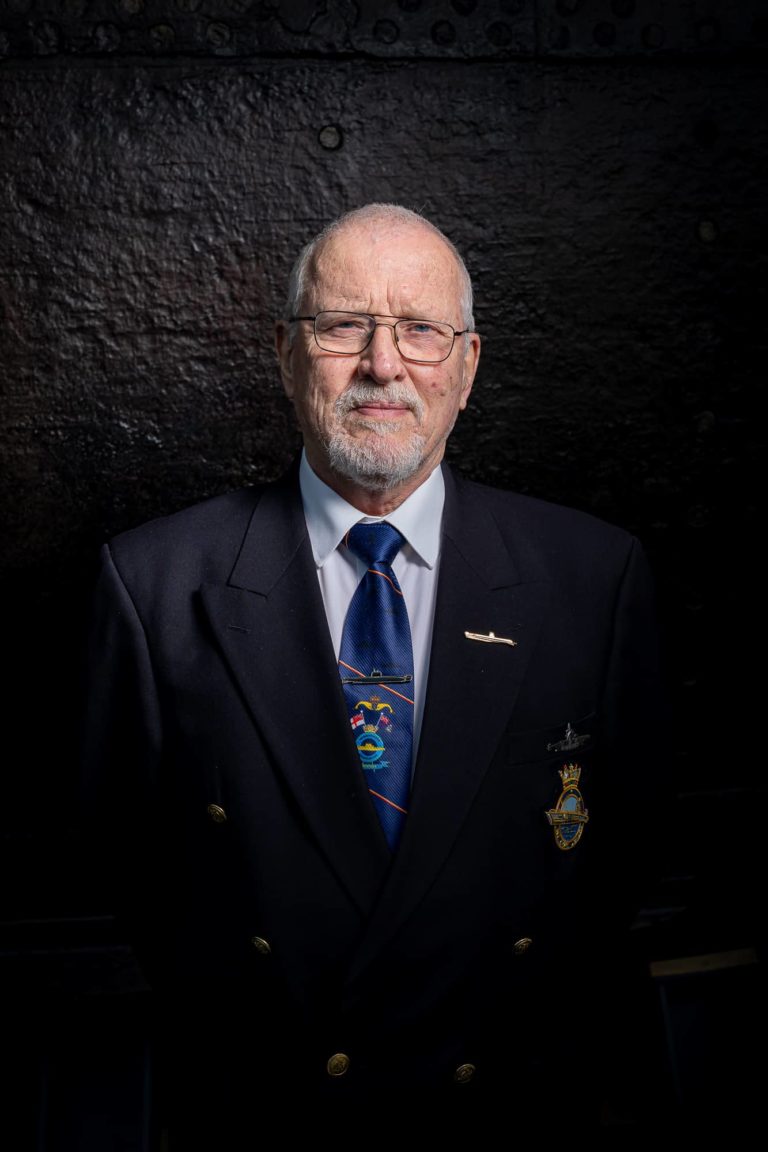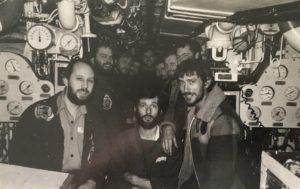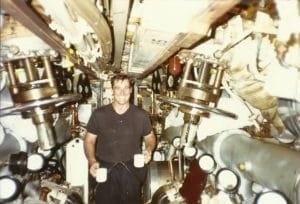David White – A typical day for chefs
So a typical day then, in the Galley on a diesel boat, the Chef that was duty last night is responsible for breakfast, so he gets up at half past five, turns the ovens on, because everything’s electric obviously, and they all take time so turns the ovens on, turns the hotplates on and prepares and cooks breakfast.
Whilst he’s doing that he’ll probably start, make a start on preparing lunch. Now, vegetables are prepared, if they’re fresh, in the Messes. Spuds, the lads peel spuds for each Mess because that’s a long job and you know, it’s a job that they can take off the Chef, but everything else the Chefs do.
So, you would make a start and while you’re cooking breakfast and feeding the crew their breakfast you’d make a start, so for example, let’s say you’re going to do a curry, so you get all the meat chopped up and sautéed off and start cooking that and you get all the spices and, so that would start cooking.
If you’re going to make a steak and kidney pie, so you get your meat cut up, get that cooked off and maybe get your pastry made, but then you serve breakfast, then when breakfast is done and you’ve cleaned away the other Chef will come down and you’ll both work in the morning, so one of you will crack on and do the rest of lunch, or you’ll both do it, but one of you, the other one who’s duty, if he gets a moment will then start preparing dinner that night.
So again, if lunch was say a Quiche Lorraine, salad, er, and Scotch eggs or chips and beans, so you know you can do that, but dinner that night might be curry or fish and chips so the other one can carry on. Then after lunch, when lunch is served up and all cleared away, the guy who got up for breakfast, he’s finished so he can now shoot off and go and watch a movie, get his head down. I had a theory, and a lot of my mates had the same theory, time spent asleep is time not spent on Patrol.
Simon: Right (laughs).
So an obscene amount of sleeping was done, certainly on the diesel boats, certainly by me and a lot of my mates. So, you go and get your head down and then the Chef would then crack on and prepare dinner. If it was a fairly simple meal he could probably have a couple of hours off in the afternoon himself and then he’d go back, he’d cook dinner, you’d go back and help serve it because it’s always quicker to serve dinner with two Chefs in there and then you’d both wash up and then that’s you finished.
Sometime in the afternoon you’re going to go down to the freezers and get all the meat out for the next day so that’s all thawed out ready for the next day and the odd time I can remember a young Chef saying to me, waking me up at 5 o’clock and saying, “I forgot to get the meat out last night” so you have to do a frantic menu change and maybe get some mince out which you can break up into manageable lumps and it’ll thaw out in a couple of hours and then you can get that cooked and you want to thump them you know because you’ve spent ages prepping your menus you know.
Simon: How far in advance do you plan menus then?
On a Polaris and a Nuclear Submarine I’d plan a whole six-week, eight-week Patrol.







